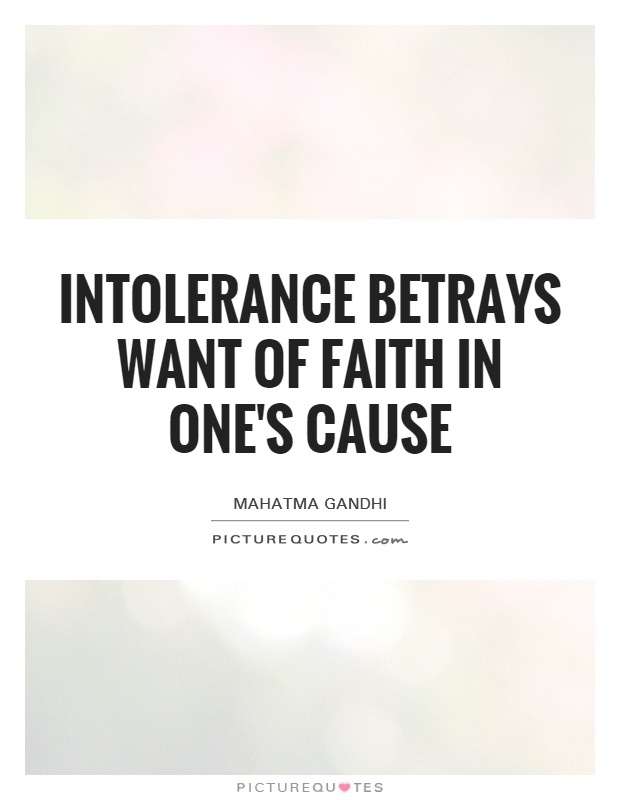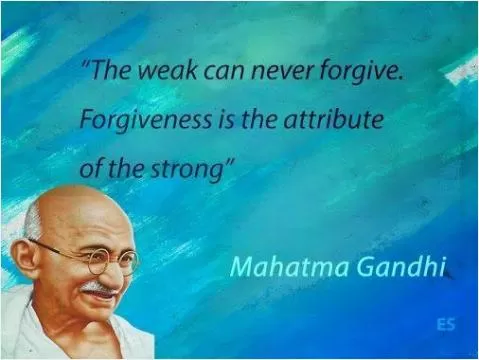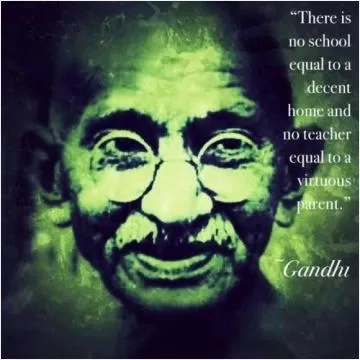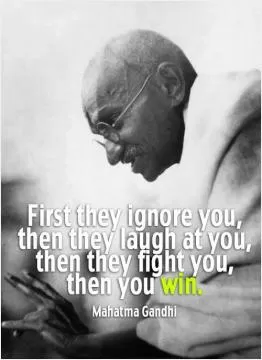Intolerance betrays want of faith in one's cause

Intolerance betrays want of faith in one's cause
Mahatma Gandhi, the revered leader of the Indian independence movement, was a staunch advocate for nonviolent resistance and civil disobedience. Throughout his life, Gandhi faced numerous challenges and obstacles in his quest for freedom and equality for the Indian people. Despite facing immense opposition and persecution, Gandhi remained steadfast in his beliefs and principles, never wavering in his commitment to his cause.One of Gandhi's most famous quotes is, "Intolerance betrays want of faith in one's cause." This statement encapsulates Gandhi's belief that true faith in one's cause requires a willingness to listen to opposing viewpoints and engage in dialogue with those who may not share the same beliefs. Gandhi understood that intolerance and close-mindedness only serve to weaken one's cause and hinder progress towards achieving one's goals.
Throughout his life, Gandhi demonstrated a deep commitment to inclusivity and understanding, even towards those who opposed him. He believed that true change could only come about through peaceful means and through the power of dialogue and persuasion. Gandhi's unwavering faith in his cause and his willingness to engage with those who disagreed with him set him apart as a truly remarkable leader.
Gandhi's approach to activism and social change serves as a powerful example for individuals and movements around the world. His emphasis on nonviolence, tolerance, and dialogue continues to inspire generations of activists and leaders to this day. Gandhi's belief that intolerance betrays a lack of faith in one's cause serves as a reminder that true progress can only be achieved through understanding, empathy, and a willingness to engage with others.












 Friendship Quotes
Friendship Quotes Love Quotes
Love Quotes Life Quotes
Life Quotes Funny Quotes
Funny Quotes Motivational Quotes
Motivational Quotes Inspirational Quotes
Inspirational Quotes